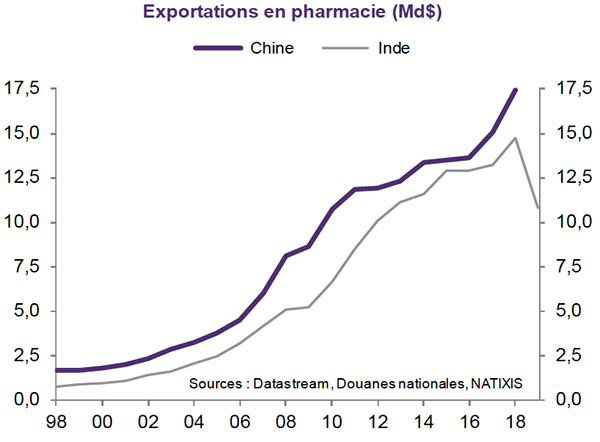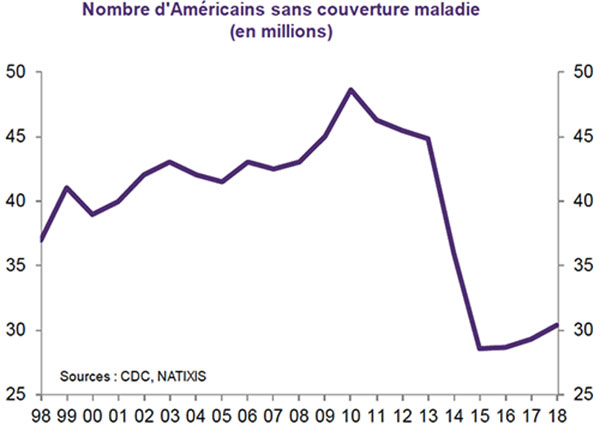Is it possible that the period following the coronavirus crisis represents an opportunity for a change of economic model? Will a transition to a paradigm that takes the long term and the utility of public services into a higher consideration take place? Is this the end of neoliberal capitalism focused mostly on short-term profits?
The coronavirus crisis illustrates the lack of resilience of our societies and their inability to anticipate and deal with crises. This inability is rooted in our economic model, entirely concerned with short-term returns. This model works mostly with one large goal in mind: growth. In situations like this, it often comes at the cost of unprepared public services such as healthcare – where the injection of greater amounts of money over time would have allowed for more means to deal with the unexpected.
So what lessons will we take from this crisis? Can we finally change the paradigm and move towards a different economic model – one that is better able to take into account our long-term needs? This is in any case what some economists seem to think, like Patrick Artus, who published on March 30, 2020 in his usual Flash Economy an analysis of the situation.
The Neoliberal Model In The Face Of Crises
In recent years, around the world, we have seen the emergence of increasingly strong challenges to the dominant economic model, based on cost reduction and budgetary austerity. After the 2008 crisis, many have asked for changes in the economic model such as reduced inequality, anticipated financial instability, and, in short, the adaptation to a more sustainable economy.
Almost everywhere, some indicators have started to show up. For example, since the 2008 crisis, there has been a gradual decline in the processes of trade globalization: world trade has slowed down and investments in emerging countries have decreased – proof that industries were trying to “change” little by little. The data in Natixis’ analysis note confirms this.
Likewise, fiscal austerity policies have started to be called into question in some countries. Public spending has increased again, or at least stabilized, even if in certain areas (in Europe) austerity policies are still in place.
The Coronavirus Crisis Highlights The Structural Weaknesses Of Neoliberal Capitalism
The problem is that all of this has not (far from it) led to a real paradigm shift. After the crisis, the stimulus policies had their effect, but we quickly began to forget what had caused the crisis in the first place. There was, therefore, a great temptation to return to previous practices, to tax competition, to reduce costs.
But this time, the situation may well be different. The coronavirus crisis highlights the structural weaknesses of our economic development model. It shows the dependence of certain outsourced production chains, the fragility of public services, especially when they are privatized and subject to cost logic. It also highlights the raison d’être of social policies and of what was called the welfare state: protecting citizens and the economy in the event of a crisis, ensuring safety nets.
As Patrick Artus’ analysis shows, it is precisely on these indicators that the situation has continued to worsen in recent years. For example, global economies have become dependent on Asian supplies for all pharmaceutical production. Never before have India and China exported so much medicine.

In some countries, social protection policies have continued to weaken. For instance, cost reduction in the areas of health or worker protection was often discussed in Europe. But one case is perhaps even more significant: in the United States, the health protection of citizens has never been so weak.

The Coronavirus Crisis Reminds Us Of The Urgency To Redefine Business Models
By highlighting these structural and strategic weaknesses, the coronavirus crisis should lead us to rethink our economic paradigm globally.
As the study indicates, “the coronavirus crisis has highlighted the fragility of global value chains: when production stops in one country, the whole chain is stopped.” Therefore, there will probably be “a return to regional value chains, with the advantage of less fragility and risk diversification.” This likely means a certain relocation and deglobalization.”A situation of dependence like that which exists for medicines from China or India will no longer be accepted” according to Patrick Artus.
We can also hope that “where it was [still] recommended, budgetary austerity will disappear“, faced with the need to re-evaluate the regulatory role of the State – in health policies or social policies in particular. It could be that the coronavirus leads to a better understanding of the fact “ that the whole population must have adequate social protection: decent unemployment compensation, healthcare…” In this context, it will therefore no longer be possible to continue to lower taxes aggressively in the context of tax competition.
Relocation, reduction of public budgets linked to social protection, tax competition: “the coronavirus crisis will lead to questioning all these choices of neoliberal capitalism“. Hopefully, so that next time we don’t end up in a far worse crisis.
[Photo by Pedro Lastra on Unsplash]

